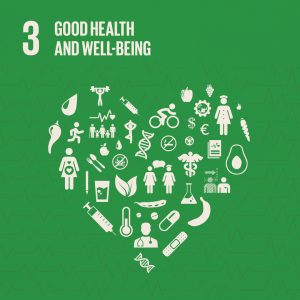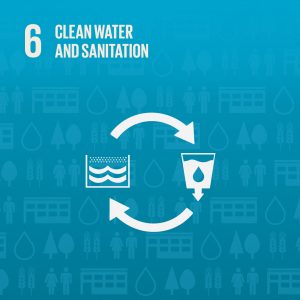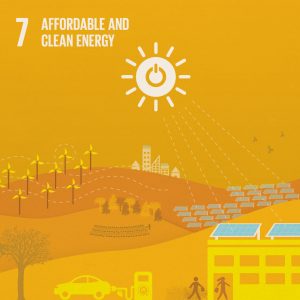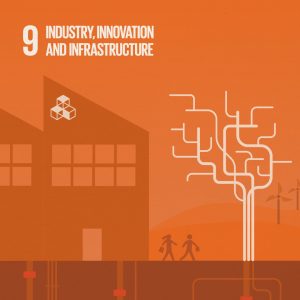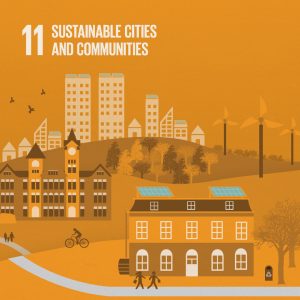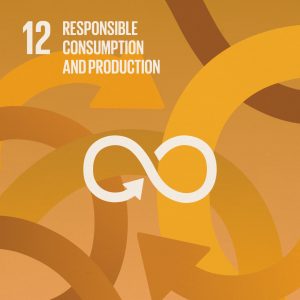By Bella Wright
Building and innovation are pivotal to advancing society. However, how we build can have significant impacts on our planet and our future. To ensure the health and well-being of our planet, it is important to practice sustainable building of infrastructure and sustainable operations management.
The STARS* assessment surrounding this operations area aligns with the following United Nations Sustainable Development Goals (SDGs):
- Goal 3: Ensure healthy lives and promote well-being for all at all ages
- Goal 6: Ensure availability and sustainable management of water and sanitation for all
- Goal 7: Ensure access to affordable, reliable, sustainable, and modern energy for all
- Goal 9: Build resilient infrastructure, promote sustainable industrialization, and foster innovation
- Goal 11: Make cities inclusive, safe, resilient, and sustainable
- Goal 12: Ensure sustainable consumption and production patterns
Subcategories
- Building Design and Construction: This credit includes all institution-owned buildings constructed or significantly renovated in the previous five years. It evaluates the extent to which these buildings were built in accordance with a published green building code, policy/guideline, and/or rating system
- Auburn’s Score: 1.45/3.00

- Auburn’s Score: 1.45/3.00
- Building Operations and Maintenance: This credit evaluates the extent to which institution-owned buildings are operated and maintained in accordance with a sustainable management policy/program and/or a green building rating system
- Auburn’s Score: 2.00/5.00

- Auburn’s Score: 2.00/5.00
Reflection
From October 2016 to September 2021, Auburn built or significantly renovated 866,882 square feet of building space.The Building Design and Construction credit reflects that 518,548 (59.8%) of these square feet were designed and built in accordance with a (not certified/verified) multi-attribute green building code, policy, guideline, or rating system. 291,525 square feet (33.6%) of these newly constructed or renovated buildings are also certified between the minimum level (LEED Silver) and second highest level (LEED Gold) of the United States Green Building Council (USGBC) rating system. While there is still work to be done to achieve the highest level of the USGBC rating system, Auburn University has taken steps towards a more sustainable construction process. To improve upon this score of 1.45/3.00, Auburn University must incorporate additional building practices that emphasize characteristics encouraged in the USGBC rating system.
In terms of Building Operations and Maintenance, all building spaces are operated and maintained in compliance with a multi-attribute, sustainable management policy/program. All buildings on Auburn University’s main campus are managed with energy/gas/water reduction targets in mind through Facilities Management, and all buildings fall under the Indoor Air Quality Protocol managed by Risk Management and Safety. However, none of the buildings are certified under an Operations and Management (O+M) rating system. Auburn University has an opportunity to grow its score in this subcategory by implementing an O+M rating system and working towards higher certification under the LEED USGBC rating system.
While Auburn University has many opportunities for growth in this category, it is important to acknowledge the recent achievements and steps taken in our building operations toward a more sustainable future for our campus and community.
*The Sustainability Tracking, Assessment, and Rating System (STARS) program is a self-reporting framework for institutions of higher education to track their sustainability performance created by the Association for the Advancement of Sustainability in Higher Education. Overall, STARS is made up of 211 possible points in 64 different subcategories. The subcategories are grouped by Academics, Engagement, Operations, and Planning & Administration. Additionally, participants may receive extra points for exemplary and innovative practices. In this summary, our score is shown over the amount of possible points for each credit. View Auburn University’s 2022 STARS Report for more details.
Learn about the SDGs & AU and our contributions related to this post.

